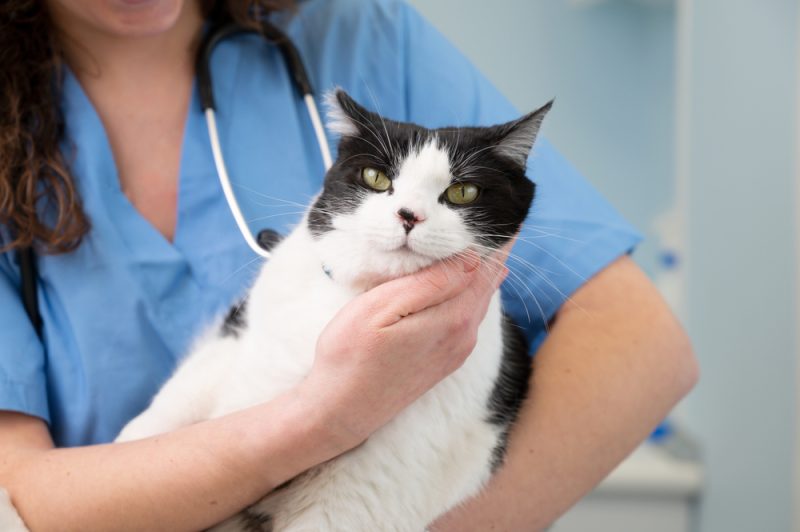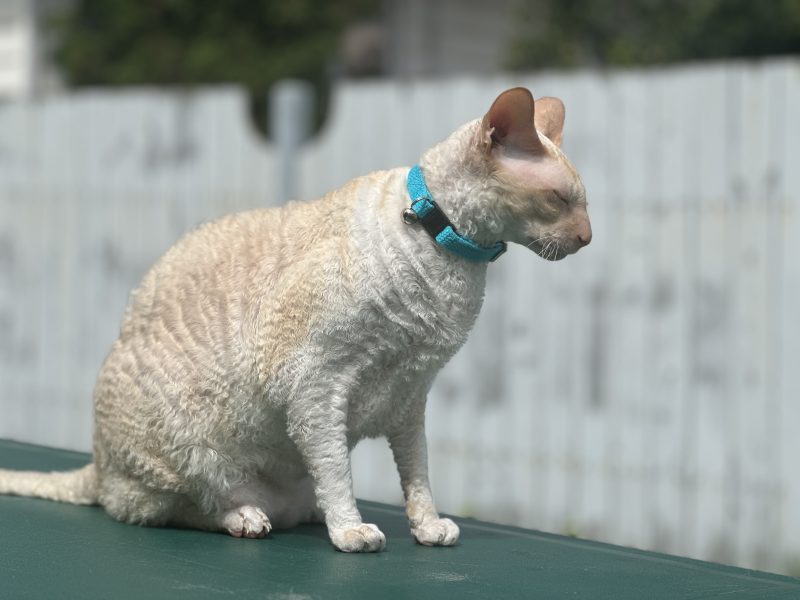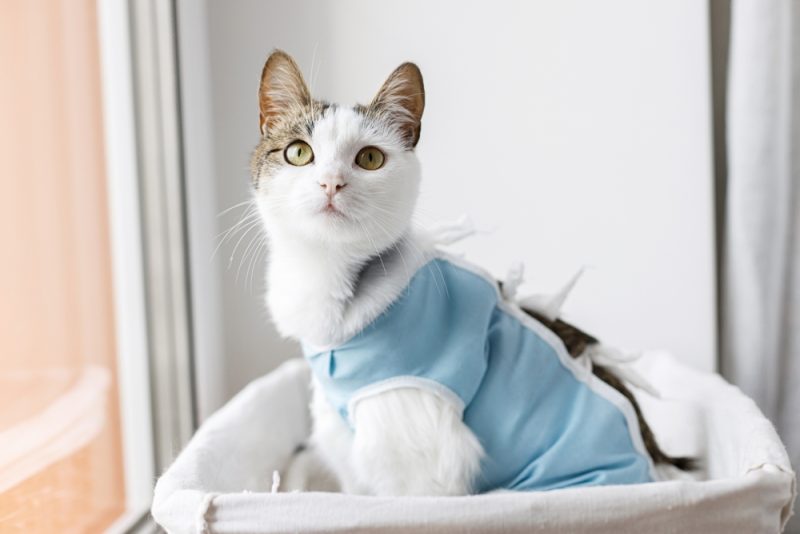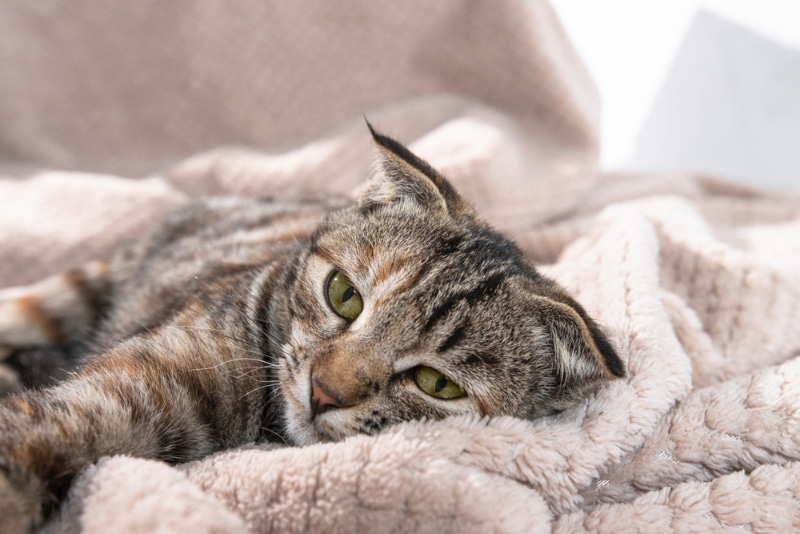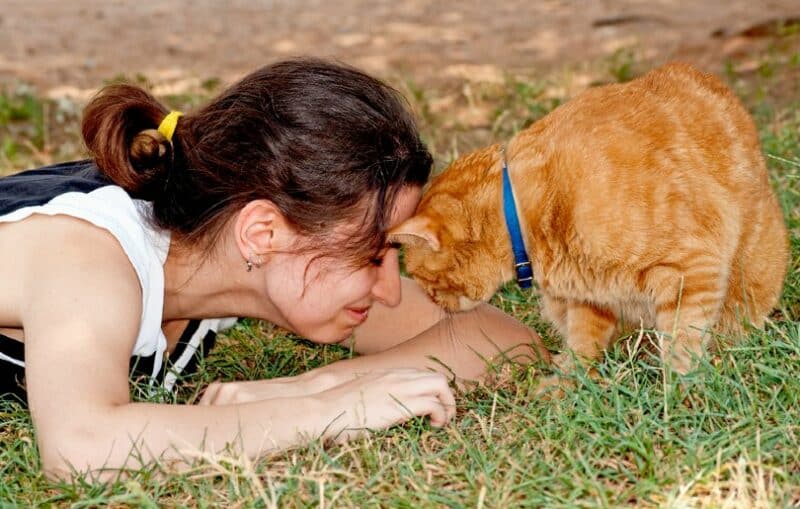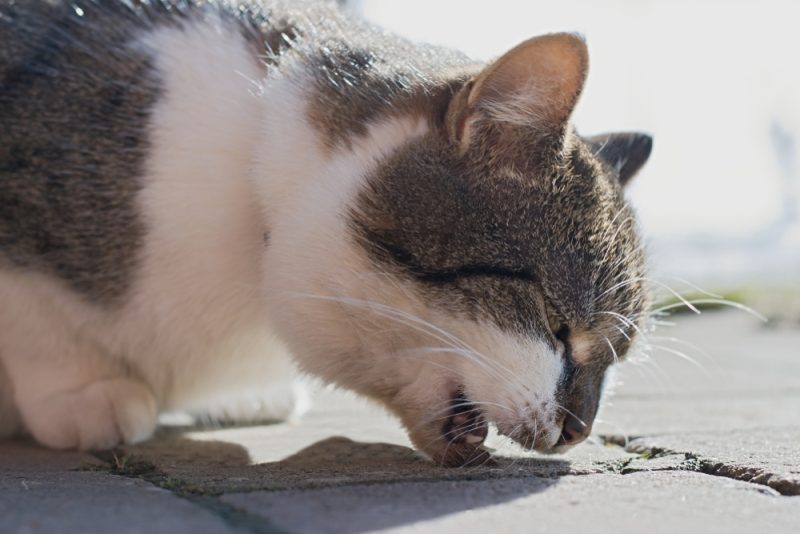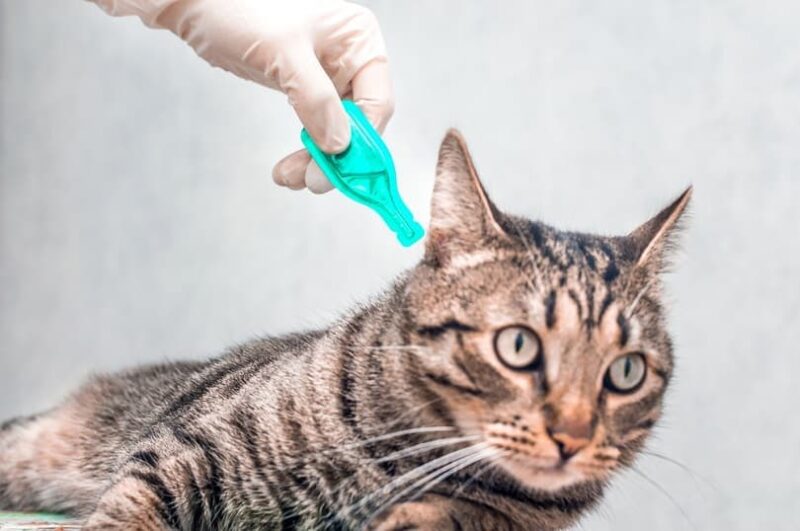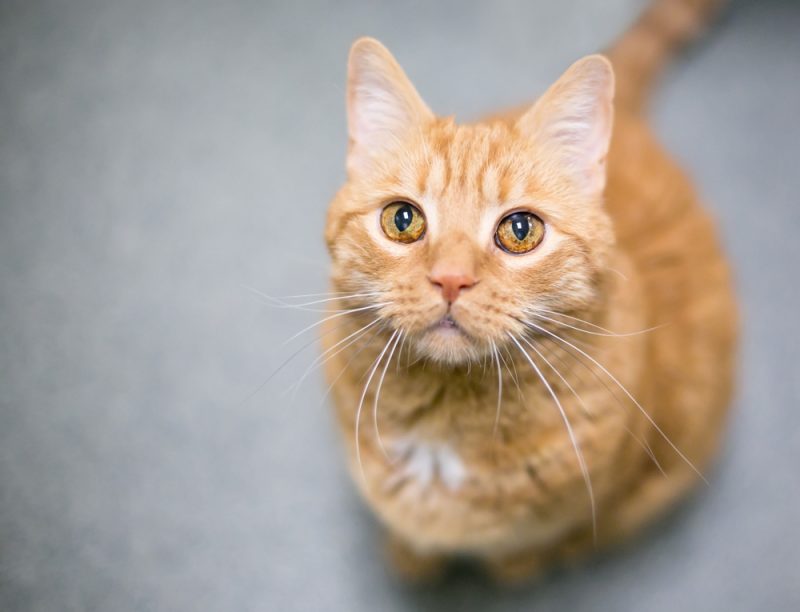In this article
Even the most devoted animal lover doesn’t want cats trampling through their garden or defecating on their lawn. You can make many DIY cat repellants to keep cats out of undesired areas, and you may have read that spraying ammonia or placing containers full of ammonia is an effective cat repellant.
While ammonia has a strong odor and will keep cats away, it’s also toxic to both animals and humans. There are safer methods to repel stray cats from your yard or keep your kitty away from something in your home. Let’s look at some humane and non-toxic approaches to deter cats.

The 5 Humane Methods to Keep Stray Cats Out of Your Yard
1. Remove Food Sources
Feral cats are always on the lookout for something to eat. Don’t leave food waste in your yard or on your deck. Store trash cans inside your garage or shed and close the lids tightly.
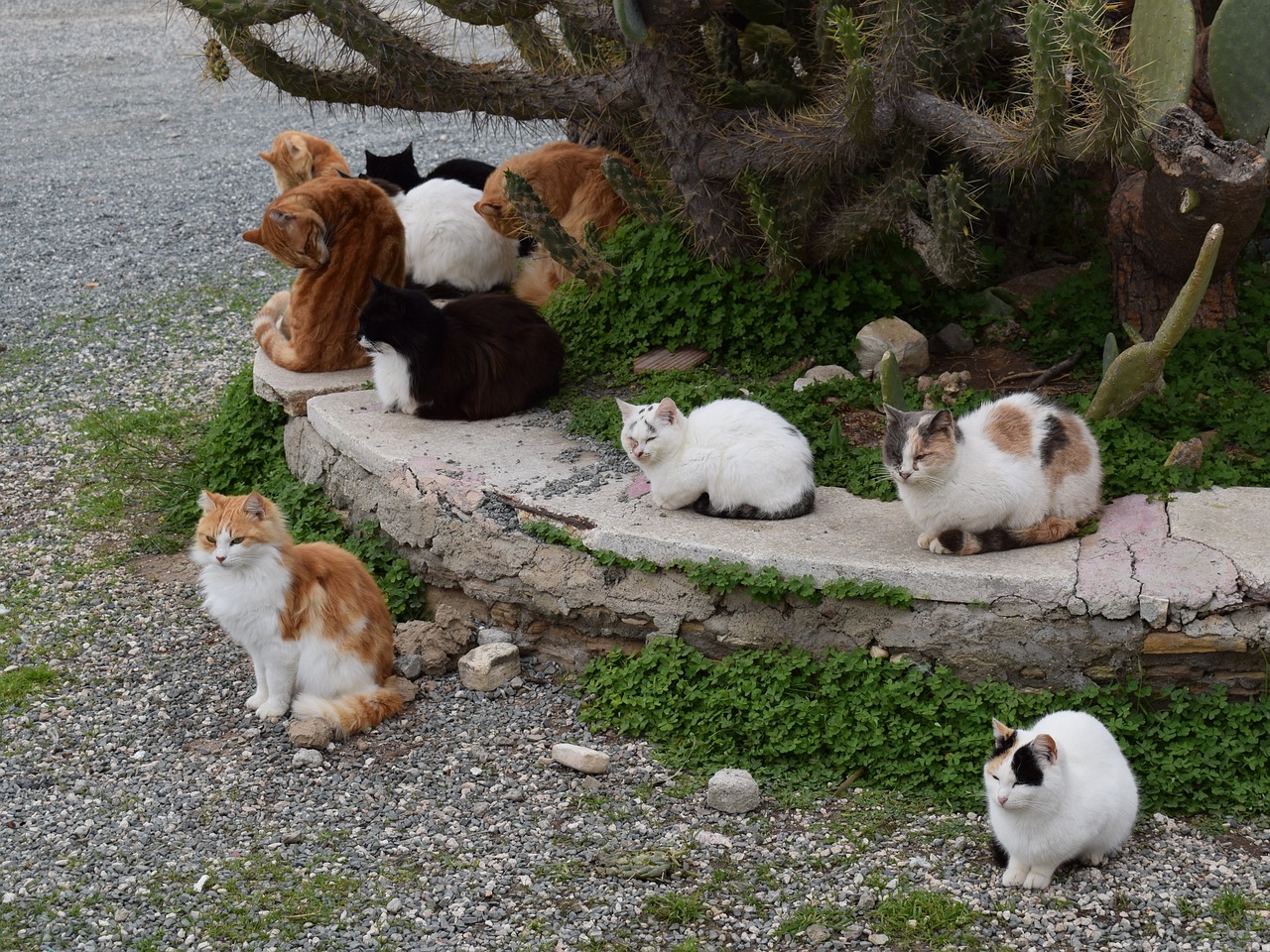
2. Lay Down Chicken Wire
Cats are sensitive to different textures. Many will not like how chicken wire feels on their paws. Another advantage of chicken wire is that it prevents digging. You can lay the wire in your yard in hot spots that attract stray cats, like around your plants. The wire needs to be secured so it’s not a tripping hazard for humans.

3. Grow Herbs
Some scents naturally repel most cats, including rosemary. You can plant these herbs where you don’t want cats nosing around. You can also sprinkle dried herbs on the ground or your deck, but the scent won’t last as long. However, be aware that some herbs are toxic to cats, so we don’t recommend this strategy if you don’t know a plant’s toxicity status.

4. Sprinkle Coffee Grounds
The smell of coffee may perk you up, but it’s a scent that many cats would rather avoid. Coffee grounds are, eco-friendly, and free way to repel cats. However, caffeine is toxic to cats, so you should be careful when using this method. Simply find a way to ensure cats can smell it but limit their access to the coffee grounds. For example, place them inside jars with holes.

5. Motion Detectors
A motion detector that emits a sound or sprays water is a humane way to scare a cat. However, the devices won’t work in every location. You don’t want to frighten your mailman or inadvertently shower your neighbors!


The 5 Natural Cat Repellants for Inside the Home
You love your cat, but you may not want them in every area of your house. Below are some tips to keep your cats off of undesired surfaces.
1. Tin Foil
Aluminum foil or tin foil is the indoor version of chicken wire. Most cats don’t’ t like how the foil feels on their paws. You can place tin foil on a countertop, around your houseplants, or wherever you don’t want your kitty to be.

2. Herbs
Cat-repelling herbs are an indoor/outdoor solution. Inside of your home, you can grow small pots of herbs like rosemary. You can also place herb-filled sachets in off-limits areas.

3. Enzyme Cleaners
You may want to keep your cat away from a particular area because they keep peeing there instead of their litterbox. To keep your cat away from its favorite peeing spot, you’ll need to use a pet-safe enzyme cleaner that neutralizes the odors.
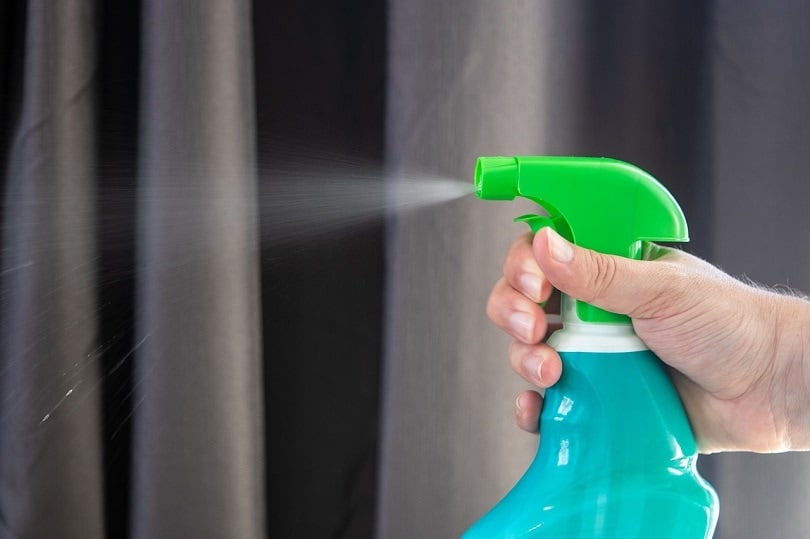
4. Double-Sided Tape
Cats generally don’t like to walk on a sticky surface. You can create a barrier with double-sided tape. The downside to sticky tape is that the adhesive can damage certain surfaces.

5. Adjust Your Expectations
Unlike dogs, most cats are not as easy to train. Cats are independent creatures that want to roam their territory. Instead of expecting your pet to stay away from certain areas, you may need to cat-proof your home.


Final Thoughts
Ammonia is not a safe product to use around cats. It can irritate a cat’s skin, eyes, and respiratory system. There are several humane methods to keep stray cats out of your yard, including motion detectors and herbs. Inside your home, you can use tin foil or sticky tape to deter your house cat from specific areas. However, cats are curious and persistent, and you may have better luck cat-proofing your home.
Featured Image Credit: luchschenF, Shutterstock




